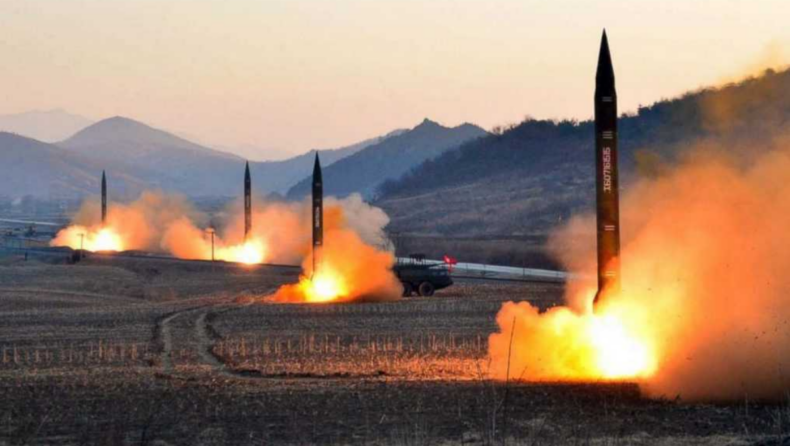
Since United Nations has been established 75 years ago, the conflict and violence have changed dramatically. The threats to international security posed by the proliferation of nuclear weapons among nations have been acknowledged by political and military professionals.
Nuclear terrorism is known as an unauthorized use of nuclear explosive devices against nuclear facilities and installations for extortionate reasons. An individual, a group of individuals, an organization, or a country can all be targets of nuclear terrorism.
There are four categories of nuclear terrorist acts to consider:
- Overt threat of using nuclear explosive devices or radiological weapons, or of attacking a nuclear site.
- Use of Nuclear explosive devices.
- Use of radiological weapons.
- Attacks against nuclear weapons storage sites, peaceful nuclear explosive devices, nuclear fuel cycle processes and materials.
Three factors appear to be particularly important
- The level of competence required to construct or otherwise “procure nuclear explosive devices, or to attack various nuclear installations” is the first factor. The degree of expertise required to construct a nuclear device is proportional to the fissionability of the materials available. The level of knowledge required to attack a nuclear plant is highly dependent on the type of facility being targeted. Some sites, such as nuclear weapons manufacturing plants, are closely secured, and a successful attack would necessitate a large number of terrorists.
- The availability of nuclear materials to terrorists is the second element that influences the possibility of nuclear terrorism. Many radioactive compounds have the potential to be used as radiological weapons.
- The motive of individuals and organizations who use terrorist techniques to achieve political and economic goals. It plays a significant role in evaluation of the likelihood of nuclear terrorism.
Nuclear terrorism’s political consequences
In contrast to the government of the state victimized by nuclear terrorism, episodes of nuclear terrorism have a variety of political ramifications. Thus, influencing governments of numerous states. When it comes to the consequence of nuclear terrorism, a variety of elements swiftly bring other nations into contact with the political aftermath.
Four major repercussions mentioned below:
- We must analyze how a victimized state’s government will respond to a nuclear terrorism act.
- Also, We must consider how other other countries would view the victim’s actions and responses to nuclear terrorism.
- We must analyze the government’s activities toward other countries in the aftermath of nuclear terrorism.
- We must consider the systemic implications of nuclear terrorism for international relations in general.
Limiting the spread of Nuclear Terrorism-induced International conflict
Nuclear terrorism can be studied in standard arms control terms, which leads to be better understanding of the issues at hand. The goal of building procedures to deal with nuclear terrorism is to lower the likelihood of conflict. Also, in the event that it does occur, to limit the effects of war.
Nuclear terrorism is ambiguous in nature. As a result, all stakeholders, including states, international organizations, and terrorists, must verify a variety of characteristics of terrorism. In addition to verification, a set of incentives and punishments, as well as mechanisms are required. Thus, implementing these incentives and penalties are needed to prevent international conflict from escalating as a result of a nuclear terrorist act.
A plan for action for reducing the conflict
Nuclear terrorism will be eradicated only when the larger issue of terrorism is resolved. As a result, there are a number of unilateral, bilateral, and multilateral initiatives that can be done to reduce the risk of war escalation as a result of nuclear terrorist occurrences.
One of the most important, and perhaps most easily accomplished, tasks is to significantly limit the global supply of materials from a fission nuclear explosive device. It is until strict physical security standards are developed, implemented, and enforced by nuclear material suppliers.
At the same time, we must be aware of the risks that potential solutions to the problem of nuclear terrorism may pose to civil rights, information freedom, and people’s freedom of movement across international borders. Many different groups’ rights and interests must be balanced. Hopefully, this will happen before we have to deal with episodes of nuclear terrorism that result in a major escalation of world conflict.
Read More-Russia’s attack on Europe’s largest nuclear plant triggers a worldwide alarm.













